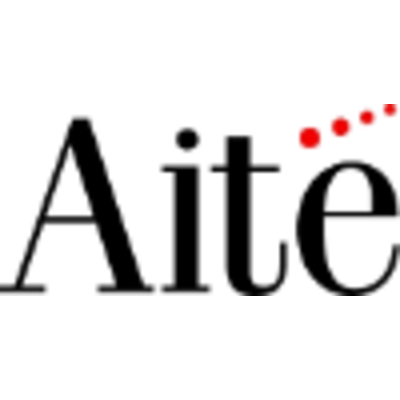Published

James Booth
Vice President and Head of Partnerships EMEA at PPRO
The term ‘global village’ has been in use since the 1960s, but the internet has really turbo-charged the idea. It has shrunk both distance and time, making the world more interconnected. see more
- 06:00 am

Bolero International is partnering with Traydstream, the leader in Trade document scrutiny using artificial intelligence (AI), to provide a powerful automatic document checking service for both its corporate and bank customers saving them time and resources as well as mitigating trade finance risks.
Users of the Bolero digitisation platform will have the option to select Traydstream’s powerful data analytics and integrated AI tools to validate transaction documentation against the underlying trade transaction as well as a vast, evolving library of ICC trade rules. Exporters will be able to pre-check their documents prior to submission to their banks, substantially reducing the likelihood of rejection and fee-incurring delays. In the same manner banks will be able to run automatic discrepancy checks on the millions of trade documents they process making substantial savings in both time and money.
Shishir Vyas, Head of Partner Solutions at Traydstream, said: “Entering into partnership with Bolero is an exciting move for us, as we share a belief in the transformational capacity of digitisation. We have been growing rapidly, working with major banks and corporates and look forward to extending our highly advanced, and scalable technology to deliver cost and efficiency gains to Bolero customers.”
Traydstream’s modular technology extracts data intelligently, using AI and optical character recognition. It slashes the time to complete checks on the dozens of documents generated by a single shipment, using a machine learning-based engine to check against the underlying trade transaction with over a quarter million rules permutations. This is a huge advantage for all exporters and banks when trade operations expertise is in short supply and billions of trade documents are in circulation at any time. Mistakes or delays can be very costly.
Anchal Tiwari, VP Product Management and Strategy at Bolero, said: “This landmark partnership with Traydstream is another significant development for Bolero and is in line with Bolero’s strategic ambition to enable third parties to provide value added services to the global Bolero client base. No other platform has this level of functionality. Integrating Traydstream’s document checking service will be a great advantage for all our corporate and bank customers helping them to save time and mitigate risk exposure while reducing costs. It’s a great set of tools to offer.”
Related News
- 09:00 am

Banco Santander (Santander), the major international financial group, has launched JCB merchant acquiring operations in Spain following a license agreement with JCB International (JCBI), the international operations subsidiary of JCB, the Japanese global payment brand. Thanks to this new alliance, Santander facilitates JCB acceptance at Santander-acquired merchants throughout Spain.
JCB’s 130 million cardmembers now have the opportunity to enjoy goods and services from Santander’s extensive merchant network in Spain, including hotels, restaurants and luxury retailers. Santander merchant partners will benefit from the opportunity to capture card sales from JCB’s predominantly Asian cardmember base.
Santander facilitation of JCB card acceptance significantly increases JCB brand coverage in Spain, providing greater convenience and augmented services to JCB cardmembers globally.
Mr. Yoshiki Kaneko, Deputy President, JCB International Ltd., said, “This partnership with Spain’s largest bank is a significant milestone in JCB’s mission to increase our acceptance footprint across Europe. JCB cardmembers can now enjoy shopping with a greater number of merchants in Spain, both online and at point of sale. With average transaction value in Spain on the rise for JCB cardmembers, we anticipate this partnership to facilitate growth for Spanish merchants, particularly in the luxury goods category.”
Rubén Justel, Managing Director at Santander España Merchant Services, said, “JCB’s growing cardmember base and prominence in the tiger markets will be of great benefit to our merchant network in Spain as we welcome greater JCB acceptance. As the world becomes a smaller place and tourism figures increase, we’ve noticed that our merchants benefit from catering to international consumers and that includes variety of payment methods. As the gateway to Asia, facilitating JCB acceptance was the next logical step in this progression.”
Related News
- 01:00 am

As global non-cash transactions boom and competition flourishes, many banks remain reluctant to embrace Open Banking via data sharing, ecosystem partnerships and open platforms, with multiple incumbents still being cautious of change. Instead, they perceive Open Banking as a potential challenge when it is a necessity for improved customer experience and retention in the long-run. That’s according to Capgemini’s World Payments Report 2019, which tracks and analyzes non-cash transaction volume, regulatory and industry initiatives, and digital transformation across the global payments market.
The report finds that the transaction volume of non-cash payments is growing rapidly, particularly in developing markets within Asia (32% growth) and CEMEA: Central Europe, Middle East and Africa (19% growth). It is projected to top 1,046 billion non-cash transactions globally by 2022, which equates to a compounded annual growth rate of 14%. Yet in a market defined by innovation, many incumbents are more fearful than optimistic about the pace and direction of change. In numerous cases, they cite the threat of BigTech challengers alongside only embracing Open Banking to the extent that regulators require, rather than seeing it as an opportunity for offering differentiation, customer retention and market leadership.
Key findings of the report include:
Growth of non-cash payments is set to skyrocket
Developing markets are leading the growth in the non-cash payment sector, projected to rise by a compound annual growth rate (CAGR) of 23.5% between 2017 and 2022. Emerging markets will soon dictate and shape the global payments landscape in terms of innovation, transaction capacity handling, and industry trends.
- In 2017, these markets accounted for 35% of global growth, a share expected to rise to 50% in the coming years. Key contributors include Russia, where non-cash transactions grew by 40% in 2017, India (39%) and China (35%).
- By contrast, mature markets including APAC, Europe and North America saw a steadier growth rate of 7%. Globally, non-cash transaction volume rose by 12% in 2016-17 to 539 billion.
- Debit cards were the fastest-growing non-cash payment instrument, with transactions up by 17% in 2017, ahead of credit cards (11%) and credit transfers (10%).
Market incumbents are wary of Open Banking, and new competition
The payments landscape is growing more complex as new market participants and emerging technologies spur disruption. In addition, changing consumer expectations and regulatory demands are forcing banks to evolve their business models for payments, but many remain wary of change.
- Less than half (48%) of those surveyed in the report said they are planning to use open APIs beyond the level needed for regulatory compliance.
- While a clear majority (63%) identified BigTech competitors leveraging their global reach, brand equity, customer trust, great customer experience and finally payments infrastructure as a leading threat.
Although banks are gradually, though too slowly, moving towards a more open, data-led and cloud-based approach, there remains a reluctance to fully embrace Open Banking. 90% identified ecosystem-based business models as key to long-term success, yet only 44% expressed interest in building and orchestrating an ecosystem of their own.
Regulation is forcing change, but pace is slow
The shift towards a converged payments ecosystem has partly been driven by regulatory changes focused on standardization and interoperability. These have included a shared digital identity platform, interoperability guidelines, and real-time payments clearing.
Most digital transformation efforts at 60% of banks are in response to regulatory compliance. Adoption of APIs beyond what regulation requires has been sluggish: a majority of banks have no plans to implement APIs that expose data in areas including intra-bank statement (53%), conditional payments (53%) and branch/ATM location (67%). Where banks are not being mandated to share more data, they are generally choosing not to do so. Open API is seen as a regulatory compliance game rather than a growth opportunity.
“The global payments landscape is undergoing significant evolution, but not all participants are comfortable with the pace and direction of change,” said Anirban Bose, CEO of Capgemini’s Financial Services and Group Executive Board member. “Banks are clearly acknowledging the importance of embracing an ecosystem-based model to meet changing customer demands and thrive in a competitive landscape. We encourage incumbent banks to consider quick-win solutions that position them for the future market, such as implementing a microservices architecture to circumvent the limitations of legacy infrastructure.”
Report methodology
The World Payments Report 2019 is comprised using the Payments Open Banking Assessment which illustrates the state of Open Banking from a payments perspective in 18 markets. This was supported by primary research including an online survey that was distributed to industry participants across banks, non-bank financial services institutions and corporates in June 2019. Executive interviews were also conducted.
Related News
- 05:00 am

Torstone Technology, a leading provider of post-trade securities and derivatives processing systems, today announces that it has signed a multi-year agreement with Numis the leading independent Investment Bank to implement Torstone’s award-winning, cloud-based platform, Inferno, to process their equities business.
Torstone Inferno is a scalable, cross-asset, post-trade processing platform which supports middle and back-office straight through processing (STP) across a wide range of asset classes. Inferno integrates middle, back-office and accounting functions covering trade capture, confirmation, settlement, accounting and reconciliations. This will enable Numis to enhance its operational functions, reduce manual effort and achieve greater operational efficiency.
Commenting on the agreement, Tim Valmas, Head of Technology and Operations at Numis, said, “Numis operates at the forefront of UK Investment Banking. We require a single, integrated, scalable and cloud-based platform capable of providing the breadth of functionality and flexibility to execute our business and continue to offer the level of service our clients expect. We believe that Inferno aligns closely with our strategy as we see trade execution and processing becoming increasingly electronic and automated in a post MiFID2 world. Inferno will deliver what we need today and fulfil our future business goals.”
Brian Collings, CEO, Torstone, said, “We’re delighted that Numis has chosen Inferno to manage its post-trade processing needs. Our solution will support Numis in minimising operational risks, reducing costs and achieving greater control. We look forward to working with Numis and continuing to drive efficiencies through our agile, integrated platform.”
Related News
- 06:00 am

Trulioo , a Vancouver-based global identity verification provider, has raised a total of C$70 million in new funding, including $60 million in Series C financing led by Goldman Sachs Growth Equity, with participation from Citi Ventures, Santander InnoVentures and existing investor American Express Ventures, and $10 million in unannounced follow-on funding from early investors Blumberg Capital and BDC Capital from last year. This brings Trulioo’s total capital investment since 2011 to $96.6 million.
The funding round will lead the company into its next growth phase, including scaling up operations in new markets to tackle today’s most pressing global problems associated with verifying identities, furthering financial inclusion and safeguarding trust and privacy. Trulioo expects to grow its headcount to 200 people from 130 today, with hiring planned across its Vancouver, San Francisco and Dublin offices.
“Today, families, businesses and entire economies are being powered by the global shift towards a truly digital economy, which is exciting but also opens up new forms of risk,” said Stephen Ufford, CEO and founder of Trulioo. “We’re committed to leveraging technology to help our customers fight financial crime, money laundering and election fraud. I’d like to thank our investors for their trust in the work we are doing and for enabling us to push forward our solutions that transcend boundaries and channels, and which facilitate trusted transactions from anywhere, instantly.”
Trulioo provides instant global identity verification for five billion consumers and more than 250 million business entities in over 195 countries — all through a single API integration. The company serves customers in a wide range of industries including technology, banking, retail, payments, online marketplaces and social media networks. By integrating with Trulioo’s API, organizations are able to instantly verify the identities of more than two-thirds of the world’s population, enabling those who were previously excluded opportunities to pursue a better life by participating in today’s modern digital economy. Trulioo’s GlobalGateway gives organizations real-time access to hundreds of reliable data sources, allowing them to stay compliant with anti-money laundering and customer due diligence requirements around the world.
“Digital businesses today are under immense pressure to adhere to strict compliance regulations, remain secure, and deliver compelling user experiences. Trulioo has proven to be a key partner in helping global businesses address all of these challenges,” said Mark Midle of Goldman Sachs’ Merchant Banking Division.
“We’ve followed the Trulioo story closely for several years and have been consistently impressed with the company’s ability to serve some of the largest and most sophisticated enterprises in the world. We are excited to support Trulioo as it continues to innovate and helps to enhance trust and privacy in increasingly digital world,” said Chase Williams of Goldman Sachs’ Merchant Banking Division.
Trulioo was founded on the belief that a digital identity can have a profound impact, especially in developing countries where most citizens do not have a record of their existence. By providing them with a digital footprint, this underbanked population is no longer invisible; they are included. Trulioo’s global ID verification solution is not constrained by geography, economic status, age or gender, and is available to any business or organization around the world at a low cost and frictionless manner – all with consumer privacy at the forefront.
Additional quotes:
“Trulioo’s robust data and coverage is improving and streamlining identity and business verification for financial institutions globally. Leveraging external data sources for Know Your Customer (KYC) and fraud prevention when onboarding new customers and businesses is crucial. This allows for increased trust and safety in today’s global online ecosystem, solving a key pain point for the financial industry. We are pleased to continue to support Trulioo in its future growth.”
- Dana Eli-Lorch, Managing Director at American Express Ventures
“In today's digital-first society, validating that people are who they say they are is critical to reducing business risk. Trulioo's identity verification service makes the process seamless and cost-effective, enabling organizations to quickly onboard new customers while still protecting themselves from identity fraud. We support Trulioo's mission to boost online trust, privacy and inclusion and are thrilled to kick-off our partnership together."
- Matt Carbonara, Managing Director, Venture Investing at Citi Ventures
"We are excited to partner with Trulioo at a pivotal time in the company’s evolution and acceleration.”
- Chris Gottschalk, Senior Advisor to Santander InnoVentures
"Santander is a participant in the global economy, and as the underlying transactions increasingly rely on digital infrastructure, Trulioo’s solution is necessary to verify and protect all participants.”
- Manuel Silva Martínez, Partner and Head of Investments at Santander InnoVentures
Related News
- 03:00 am

B-Hive, the European Banking Federation, Febelfin and FinTech Belgium join forces and today announce the very first Digital Finance Summit, on November 27, 2019 in Brussels. At the event - the biggest fintech conference ever in Belgium - entrepreneurs, financial services providers and policy makers will gather in the heart of Europe to shape the future of the European fintech ecosystem.
Innovative insights on the future of fintech
The financial landscape is undergoing rapid transformation. Uncertainties about the search for adequate tech talent and how to deal with regulations, open banking, payments, cloud computing, ecosystems/hubs, crypto-assets, insurtech, trust and sustainability keep finance experts busy.
During the Digital Finance Summit on November 27, market players, both large and small, old and new, will share their fresh views on these latest innovations, while regulators and decision makers will enlighten the ecosystem players on how to keep the fintech sector stable, secure and reliable for all.
Innovating together
Previous events in Brussels have included the Fintech Belgium Summit and Digital Finance Europe, all organized separately. This year, the two events merge together into one flagship event: Digital Finance Summit. The DFS is the result of a collaboration between four partners: the European Banking Federation, representing the European banking sector, Febelfin, representing the Belgian financial sector, FinTech Belgium, representing the fintech community in Belgium, and B-Hive, the collaborative innovation platform for financial institutions and fintechs.
Given the different backgrounds of these organizing partners and their networks, DFS is a fintech breeding ground, a unique event offering a complete view on current technological, regulatory and financial insights.
In the heart of Europe and European policy
The DFS is the biggest fintech conference in Belgium, in the heart of Europe. Hosted in Brussels, the capital of European policy setters, this event is one of the few places enabling large financials, start-ups and technology experts to merge their respective potential while picking up on European fintech growth, valuable partnerships and regulatory insights.
Fabian Vandenreydt, Executive Chairman B-Hive: “Change is happening fast, fueled by continuous tech solutions. However, innovation is not only about technology. The ultimate impact of these emerging tech solutions will be felt by the end-users: consumers, households, businesses and employees in the financial sector. That is why it is important to bring the entire European fintech world together. Hosted in the capital of European policy setters, the Digital Finance Summit is the perfect platform for global innovators to share insights and to be inspired by a unique blend of industry leaders. The objective is to turbo boost the European fintech ecosystem.”
Sebastien de Brouwer, Chief Policy Officer at EBF: “Bringing together so many financial innovators provides a unique opportunity for the global fintech community to visit Brussels. We see that regulation is changing fast and the ecosystem keeps on growing, especially the access to artificial intelligence solutions and the growing data economy. We are looking forward to pushing the European fintech potential to new heights with policy experts and entrepreneurs.”
Karel Van Eetvelt, CEO Febeflin: “Open banking, collapsing business models, Libra,… the financial services industry is facing unseen challenges. Tackling those will require an all-hands effort by the financial institutions, fintechs and regulators alike. Brussels as EU capital is halfway between London and Frankfurt and less than 2 hours from any European financial regulator. This conference is also intended to be a strong signal to the new EU Commission and financial regulators: Let us work together to create a business environment that guarantees that European citizens and SMEs can continue to rely on a strong and competitive European financial sector for access to financial services.”
Jean Louis Van Houwe, Chairman FinTech Belgium: “Changes in the financial, insurance and regulatory fields are accelerating with the emergence of new challenges, new opportunities and new players. It is important that at least once a year all stakeholders can meet to keep up-to-date, hear the latest trends and establish collaborations in this fast-growing environment. After 3 successful editions of the FinTech Belgium Summit, we are very happy to now be combining forces with other organizations to organize 2019's major FinTech event in the capital of Europe: the Digital Finance Summit.”
Related News
- 09:00 am

nCipher Security, an Entrust Datacard company, announces nShield as a Service, a cloud-based hardware security module (HSM) service that allows organisations to protect sensitive data and applications and helps meet compliance mandates – simply and efficiently, using on-demand cryptography.
“Organisations embracing cloud-first strategies require cloud-first encryption,” said Peter Galvin, vice president of strategy, nCipher Security. “This means remote, automated management at scale, and flexible access control both in the cloud and onsite. nShield as a Service makes it easy to adopt a secure, multi-cloud encryption strategy using the same nShield HSMs organisations deploy onsite today.”
nShield as a Service is ideal for cloud-first strategies, selective cloud migration, or adding HSM capacity to handle workload spikes. The customer experience is consistent and familiar – users interact with the cloud-based nShield® HSMs in the same way as with nShield appliances in their own data centers. And customers utilising nCipher’s unique secure execution environment to run sensitive application code within a secure FIPS-validated boundary now have that same opportunity using cloud-based as well as on premises HSMs.
Using nShield as a Service, customers can:
- implement Bring Your Own Key and Host Your Own Key solutions with a trusted third party service
- maintain full control over key material and maintain separation of data from the encryption keys
- extend cloud-based cryptography and key management across multiple clouds
- implement secure code execution for cloud-based workloads
- integrate with third party applications in the cloud
“The nShield as a Service launch highlights the synergies we’ve gained since becoming an Entrust Datacard company in June,” Galvin said. “We were able to accelerate and enhance nShield as a Service by combining our HSM and cryptography expertise with Entrust Datacard’s experience in data centers, cloud services and HSM operations. The result is a powerful HSM as a service solution that complements the company’s cloud-based PKI and IoT security solutions.”
“Encryption is a powerful tool,” said Robert Westervelt, Research Director, Security Products, IDC. “Delivering it easily across distributed infrastructure can be very effective in protecting data and applications against cyberattacks. Solutions such as nShield as a Service allow even the largest organisations to secure their public cloud workloads with all the conveniences of software-as-a-service offerings. Now, there are no excuses for not using encryption in the cloud.”
How nShield as a Service works
nShield as a Service uses nShield HSMs to generate, access and protect cryptographic key material separately from sensitive data. All nShield HSMs are managed through nCipher’s unique Security World key management architecture that spans cloud-based and on premises HSMs. This lets customers efficiently scale HSM operations while retaining control of their key material, even if they change their cloud service provider.
Organisations can utilize nShield as a Service to supplement or replace on premises HSMs, while keeping the benefits of HSM ownership. The subscription model lets enterprises budget predictably, manage capacity, reduce data center footprint and decrease time spent on routine maintenance and monitoring.
Customers seeking cloud-first solutions can work with market-leading cybersecurity and infrastructure vendors in nCipher’s nFinity Strategic Technology Partner program, including F5, IBM, Micro Focus Voltage, Red Hat and Venafi (see quote sheet below). Applications include SSL/TLS, code signing, data and database encryption and more.
Related News
- 02:00 am

Tribe Payments, a team of industry experts dedicated to delivering the future of payments, has secured certification from Visa, the world’s leader in digital payments, as an issuer and acquirer processor across Europe.
The certification means that Tribe’s customers—banks, challengers, fintechs and acquirers that offer payment services to merchants and consumers—can issue Visa cards and acquire Visa payments. These payment service providers can now benefit from access to a payments network accepted online and in-store by 53 million merchants worldwide.
Tribe’s platform ISAAC, which has been built from the ground up as modular and containerised, allows Tribe to facilitate rapid issuer and acquirer integrations with Visa across Europe. Its issuing technology supports both current and legacy payment types including EMV, magstripe, virtual and contactless card processing across prepaid, debit and credit payment rails.
“We are excited to announce our partnership with Tribe, a young brand that is pushing the boundaries of what is possible when it comes to payments,” said Jill Docherty, Head of Business Development at Visa. “At Visa, we are committed to helping the next generation of payment innovators, and are looking forward to working with Tribe to help them achieve their business goals.”
Tribe was founded by payments veteran Suresh Vaghjiani, who has worked with a host of fintechs—including Curve, Monzo, Revolut and Starling—to deliver ground-breaking payment services. Unlike most vendors, Tribe provides all aspects of payments technology to businesses that serve merchants and consumers using a modular platform. Tribe is the only provider to fully break the ‘legacy-cycle’, using disposable technology to ensure zero-obsolescence and containerisation to minimise risk.
“Certification from Visa means that Tribe, in only a short period from our official launch, can now offer issuer and acquirer integrations with the three largest card schemes in the world,” said Suresh Vaghjiani, CEO of Tribe Payments. “Visa has committed to supporting innovative payment technology, and with this certification Tribe’s modular platform can offer even greater scale and choice to our customers.”
Related News
- 02:00 am

Aite Group, a global research and advisory firm in financial services, today launches a new report “The Payments Transformation Race: Criteria for Success”, commissioned by Icon Solutions. Based on a global survey of senior executives at the world’s top-tier banks, it reveals that high costs, low margins and increasingly commoditised business models are eroding payment profits, resulting in some services failing to break even.
On the upside, it shows a clear link between payment transformation priority and profit, with those banks committed to investment demonstrating higher margins and more positive returns. To help banks ensure their payment transformation strategies are on the right track, the report also provides a practical ‘scorecard’ that lets them benchmark their own performance and priorities against key success criteria.
Banks must invest in new infrastructure to cut the cost of delivering payment services.
Four out of five banks surveyed (80%) agree that payments are becoming less profitable, with only 18% able to charge what they want for payments. Total Cost of Ownership (TCO) is increasing as banks invest in new infrastructure to meet external demands for faster payments. Many are seeking to offset this by streamlining back end systems using cloud and Open Source to create more responsive and, critically, cost-effective platforms.
At the same time, 90% of banks are on the road to low-cost Real-Time Payments (RTP), which will boost demand but erode fee margins even further. Facing a pincer of falling returns and rising costs, banks’ payment margins will continue to shrink without a clear payments transformation strategy.
Findings show payment models need to shift from transaction to data-led if revenues are to increase.
Payments is moving from a profit centre to a cost centre with more than two thirds (65%) reporting that services are operating close to (or below) profitability. Current priorities are driven by fear of losing both customers (68%) and transaction volumes (64%).
Banks are clearly aware that cutting costs is not enough and that they must also use payments data to deliver more appealing propositions and revenue boosting value-added services. Yet only 15% have made the switch from transaction-led to data-led revenue models - even though they could leverage mandatory Open Banking initiatives to generate further data analytics and deliver new customised products to drive new revenue streams.
Transformation strategies should address cost and revenue challenges to ensure payment profitability.
It’s evident from the research that those banks with an organisational commitment to transforming payments will be more successful at responding to change. In fact, the research has highlighted that those banks undertaking transformation are strongly correlated with those that are able to charge more and thus drive improved profitability. For many banks, however, undertaking transformation has been slow. Just 10% of banks are in the final stages of payment transformation while 30% are only just starting their journey.
To deliver profitable payments services, it is vital that banks have a single strategy to improve cost and revenue sides of the equation. The report argues that banks should collaborate with partners, not just to facilitate foundational systems but also to create the strategic roadmaps that will guide their long-term payment transformation.
Erika Baumann, Senior Research Analyst, Wholesale Banking & Payments at Aite Group, explains: “Evidence indicates that traditional revenue models of payments are starting to shift – operating sub-profit is simply not viable long-term. Fifteen percent of top tier banks around the globe have already moved to data-driven models and others are following suit. There is still a considerable amount of inertia in the market with banks not knowing how to start or speed up their transition, which could put valuable clients, prospects, and transaction volumes at risk. Diving deep into these issues, this new report may be a wake-up call from some institutions, encouraging an acceleration of their payment transformation strategy.”
Simon Wilson, Director of Global Payments at Icon Solutions, adds: “It’s clear that profitability from payments is on the decline. For banks looking to retain the value payments bring in customer engagement and insight, reversing this trend is a top priority. Investing in new transformative technology can simultaneously reduce TCO and provide the tools to drive new sources of revenue growth.”
However, Wilson recognises the challenge faced by banks, “Feedback highlights a lack of information around strategic considerations, best practice and risk minimisation. This report aims to assist banks in tackling transformation initiatives. The good news is that, as the report shows, those who succeed are those that will reap the greatest rewards.”
The report is based on Aite analysts’ expert insight as well as data and information from a 2019 Survey of 22 leading global banks across the USA, Canada, Asia, and Europe. Interviews were conducted with key decision makers whose titles include Head of Payments, Head of Innovation, Head of Treasury, Senior Product Manager, Director, and Managing Director.









